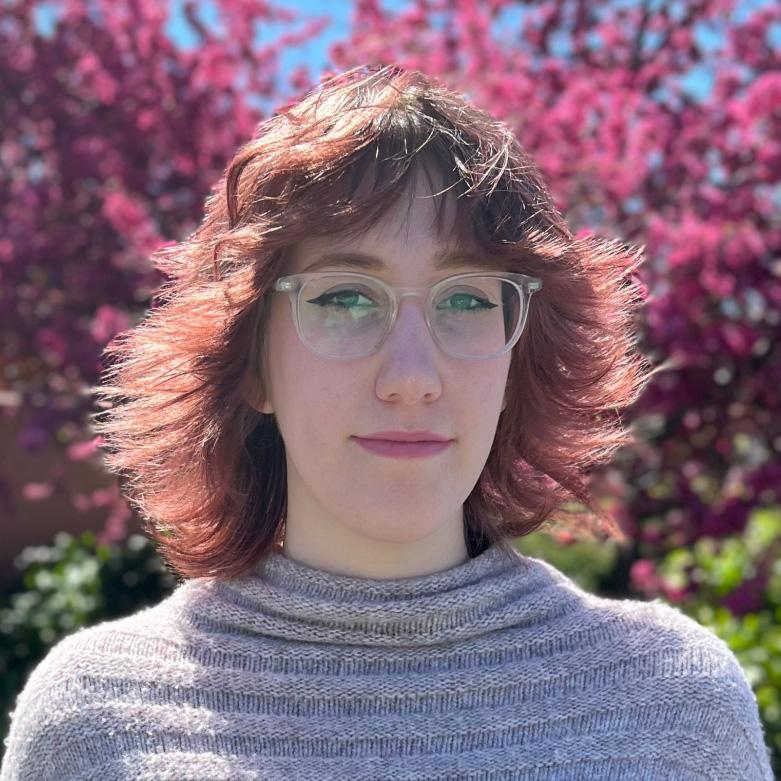Jennifer Symonds
Jennifer Symonds, BS
Environmental Analyst
Resilient Landscapes Program
Urban Nature Lab
Jennifer Symonds is an Environmental Analyst for the Resilient Landscapes program. Jennifer received a B.S. in Environmental Science and a minor in Sustainable Design from University of California, Berkeley. For their honors thesis, Jennifer developed a remote-sensing algorithm to detect cover crops in the Central Coast of California for which they won the Melis Medal at University of California, Berkeley’s College of Natural Resources. Jennifer’s undergraduate research included urban ecology projects in New York City, wastewater pollutant treatment in Santa Cruz, and agroecology research in Berkeley. At SFEI, Jennifer uses their interest in landscape analysis, urban ecology, and research to support Urban Nature Lab projects.
Related Projects, News, and Events
 Sacramento Valley Historical Ecology (Project)
Sacramento Valley Historical Ecology (Project)
The Sacramento Valley Historical Ecology Study will synthesize historical data in order to understand the ecological, hydrological, and geomorphic conditions of the valley prior to major Euro-American modification. Using early sources such as historical maps, aerial photography, textual accounts, and early surveys, the study will reconstruct a picture of past landscape conditions, processes, and habitat types to help inform restoration and management projects within the Sacramento Valley.
 Sediment Solutions (Project)
Sediment Solutions (Project)
Sediment Solutions is a timely and innovative project that builds on SFEI’s past work, operationalizing cutting-edge science to inform management approaches that take advantage of natural processes to provide more creek sediment to baylands, increase climate resilience, and enhance creek health. With study areas in North Bay, East Bay, and South Bay, the project will provide new guidance for management strategies that support flood risk management and ecosystem health benefits throughout the region.
 Google Ecology Advising (Project)
Google Ecology Advising (Project)
SFEI collaborates with the Google Ecology Program to advance the science and application of urban biodiversity and nature-based sustainability planning.
 Vision from the Skies: Using UAS Surveys to Monitor a Key Restoration Project (News)
Vision from the Skies: Using UAS Surveys to Monitor a Key Restoration Project (News)
At the McCosker Creek Restoration site, 3,000 linear feet of creek channel that previously had been flowing through underground culverts since the 1950s was daylighted and reconstructed. In addition, invasive and non native plants were removed and replaced with over 5,000 native plants. The restoration was also designed to support erosion control, and provide habitat for wildlife and aquatic species including rainbow trout, California red-legged frog and the Alameda whipsnake. This restoration work began in 2020 and concluded in 2023.
 Suisun Landscapes (Project)
Suisun Landscapes (Project)
The largest brackish marsh on the West Coast, Suisun Marsh is a unique transitional landscape between San Francisco Bay and the Sacramento-San Joaquin Delta. The Marsh supports high ecological diversity and has long been managed for recreational hunting and native species support, yet it is threatened by an uncertain future under climate change. Effective adaptation in Suisun will require coordinated, science-based planning by agencies and private landowners.
 New Ecology for Heath report forges tighter connections between human and ecological health (News)
New Ecology for Heath report forges tighter connections between human and ecological health (News)
The same features in urban parks that support biodiversity can also benefit human health. Even biodiversity itself may help us — and the San Francisco Estuary Institute (SFEI) wants to see more of it. To that end, the nonprofit released an innovative report in September called Ecology for Health. It’s a practical guide for planners and designers to aid both biodiversity and human health in urban settings.
 Reconnecting Riverside with its River: Integrating Historical and Urban Ecology for a Healthier Future (Project)
Reconnecting Riverside with its River: Integrating Historical and Urban Ecology for a Healthier Future (Project)
This study focuses on a segment of the Santa Ana River Parkway in and around the City of Riverside, where multiple habitat restoration projects are underway.
The Ecology for Health guide is based on an extensive review of ecological literature on the potential of cities to support native plants and wildlife, as well as research exploring the health benefits of access to biodiverse greenspace. Anyone making decisions about land use and urban design in cities across the world can benefit from the recommendations in this guide (including community-based organizations, local non-profits, local leaders and policymakers, city planners, urban designers, landscape architects, engineers, gardeners/horticulturists/arborists, residents, and landowners).
 Managing Open Space in Support of Net Zero (Project)
Managing Open Space in Support of Net Zero (Project)
Protecting carbon stocks and increasing carbon sequestration can support climate change mitigation and maintain healthy, resilient ecosystems. To support SFPUC managers in making informed carbon management decisions, the Alameda Watershed Carbon Assessment offers scientific guidance on the watershed’s current and potential performance as a natural climate solution. This assessment was framed by two main objectives: to quantify current carbon stocks in the Alameda Watershed, and to evaluate opportunities to enhance carbon sequestration in its vegetation and soils.

